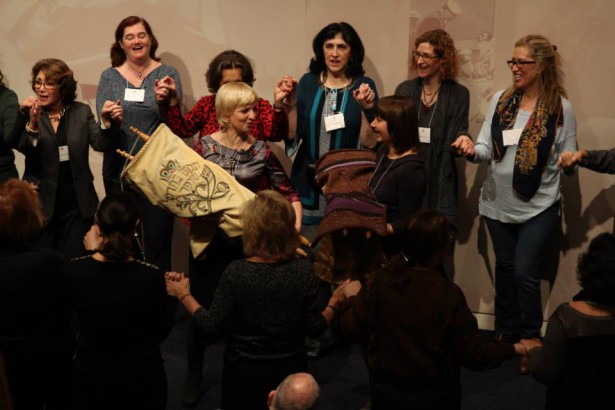
When two countries with ties as strong as Ukraine and Russia come into conflict, relationships are fractured and communities are torn apart. Thousands of families have members on both sides of the border, and as the war drags out and the battle waged in the media for hearts and minds intensifies, once-close relatives are increasingly finding themselves on opposite sides of a bitter divide. One amazing story is that of Serhiy Hilyan, who spent nine hellish days trying to defend Donetsk airport against the separatists and undeclared Russian soldiers — and whose own father is a colonel in the Russian army.
Even within Ukraine, loyalties are split between Ukrainian state loyalists and those supporting the separatists. Friendships built over decades are splintered, or severed altogether, and mixed marriages come under strain.
Alienation and dehumanization are central to war. Without the psychological process that can turn two people from friends, lovers and even total strangers into enemies, for reasons which are completely beyond their control, war would not be possible. Since the outbreak of violence in eastern Ukraine, battles on the ground have been shadowed by a ferocious information war as pro-Russian and pro-Ukrainian forces fight for control of the media narrative. People on either side of the border are bombarded with completely different and often conflicting information about the war. To the Ukrainians the struggle is between Russian invaders, “terrorists” and the legitimate Ukrainian state; to Russians, the marginalized people of Donetsk and Luhansk are fighting back against abuses by Kiev and the disdainfully-labelled “Ukies.”
The dissonance between the two narratives is so extreme that often individual citizens cannot agree on even the most basic facts about the conflict. There is no middle ground, and heavy pressure to pick a side. Cousins in Ukraine and Russia can no longer talk about politics, because each believes the other has been hoodwinked by propaganda about the war. Even personal identities come under scrutiny — on both sides, Ukrainian-born Russians and Russian-born Ukrainians are finding ways to show their allegiance, for example through changing profile pictures to the Russian national flag, or posting violently anti-Russian content on social media.
In most of these stories of cross-border ties, however, there is a kind of quiet resistance against all of the forces seeking to drive a wedge between the ordinary citizens of Ukraine and Russia. Certain topics are now off-limits, but they are still talking. During the day Serhiy fights undeclared Russian soldiers; at night, he phones a Russian army base and asks a Russian colonel about his health. The cousins still talk on the phone, and worry for each other’s safety. Alexander Shilov, a supporter of the separatists, still meets up with his Ukrainian loyalist cousin to play the video game Mortal Kombat.
This kind of person-to-person connection is incredibly important, according to Vlada Nedak, who is a member of Project Kesher, an international network of Jewish women. With members in Russian-occupied Crimea and Ukraine’s embattled east, the conflict has had a big impact on Project Kesher’s work. In December, when Project Kesher held training sessions on mediation and tolerance in Kiev, Crimean activists were unable to attend because of a lack of transport links and the complicated passport situation. The conflict is exerting pressure on the women’s network in other ways too.
Project Kesher’s members are not immune to the polarizing influences in their societies. Vlada gives the example of a professional psychologist and member of Project Kesher who became intensely anti-Russian as a result of working with and hearing the stories of people fleeing from the conflict zone. Through participating in training programs with the project, however, she was able to talk to Russian women and build connections on a personal level, by finding points of common interest. Afterwards the psychologist said that it had been important for her to meet people from Russia who cared as much about the situation as she did, and that it had helped her to understand that individual Russians were not to blame. “We said, ‘Look at each other. We didn’t change; we’re still working with each other, with the Jewish community, we have the same Jewish values,’” Vlada said. “[They] work in Russia with the refugees and we [work] here in Ukraine.”
Vlada no longer allows television in her home, to shield her family from the aggression being beamed out by the media. This is one of many small but significant acts of resistance against the violent and divisive narratives which are being weaved around the crisis in Ukraine.
As families, communities and networks like Project Kesher work to hold on to personal connections and personal relationships, and to remind each other that there are good people doing their best to help on both sides of the border, they build up a grassroots defense against the psychological impacts of alienation in conflict.
“The women of Project Kesher make positive moods in their families, their small circle of people, and it [has an] influence,” Vlada said. “I can’t influence what will happen tomorrow, but the attitude of my husband, my son in his school, this I can influence.”
